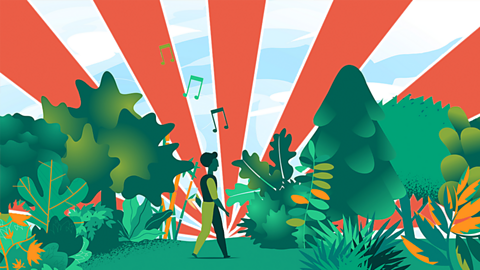
Welcome to The Regenerators.
Being in nature can be extremely beneficial for our mind and body.
The more time you spend in nature, the more you’ll appreciate it and want to protect it.
By conserving wildlife and protecting our ecosystems, we're making sure that future generations can enjoy our beautiful world and all of its incredible species. Encouraging more contact with nature, especially during childhood, can help to increase positive environmental attitudes and behaviours.
Can these three families bring their everyday lives closer to nature?
Check out these easy activities that the Clarkes, Gardeners and Kunchalas have tried to help bring nature into their lives more.
Rachel: Hopefully he will survive, this hedgehog that we're looking after.
Neo-Rae: Yeah.
Raymond: So a quarter of all native mammals…
Sneha: are now at risk of extinction in Britain.
Raymond: And only 13% of the UK is land area covered by trees, as compared to an average of 37% in Europe.
Sienna: That's significant because one hectare of woodland can absorb more than 400 tons of carbon dioxide.
Daniel: Wow that's a big difference, isn't it? That's almost like three times more in Europe.
Anil: Wow, that's huge isn't it?
Aneeshwar: Yeah, that's a really big number.
Rachel: You know tree trees help us, don't you? And what do they help us with?
Neo-Rae: Help us breathe air.
Anil: So what can we do to increase the trees in the UK Anish?
Aneeshwar: Keep on planting more trees in your garden.
Rachel: Can you find any bugs in that section?
Neo-Rae: No bugs.
Rachel: Come to mummy then.
Neo-Rae: Look, snail, slugs, there's a worm there, what is this?
Raymond: This is a spider's web, can't break the web because what is it for the spiders?
Neo-Rae: Their home.
Austin: Snails have the most teeth of any animal and our garden snail can have over 14,000 teeth.
Rachel: We are off to collect some items for our hedgehog house.
Madison: This can be a bird feeder.
Sienna: I've already got one.
Rachel: Okay, so you've made a little bed there guys, loving it.
Austin: There's this bird feeder that I put on so they can get some food.
Rachel: Where are you going to put it? At the side of the hedgehog house? Ah you've made him a cute little home.
Aneeshwar: This is Sankey Canal, where you can see amazing biodiversity and birds and animals. We also need to clean up this area frequently. So we're going to pick up some rubbish. It's just been five minutes and we got this much.
Rachel: We found trying to get out every day as a family, we found that difficult because obviously we're all here at different times.
Daniel: What kind of bird? What was that bird? An Eagle, Owl? Oh yeah.
Austin: Yeah it kept on flying over your head.
Madison: And he went on the bench.
Austin: One stood next to me. And at one point it was like…
Sienna: I'd say we can help the environment by keeping their habitat so they can survive.
Rachel: We recycled things from the house didn't we, that we had.
Neo-Rae: And then collected some sticks and some dried leaves and then we put them all in there and built the hedgehog house.
Aneeshwar: If you look after nature, nature will not only look after the animals, but look after you as well.
Try spending time in nature every day for a week
Natural England suggests that nearly a quarter of children spend time outside in nature less than once a month.
Just two hours a week outside – whether that’s all in one go or over a few days – can help boost your wellbeing according to a 2019 study published in the journal Nature.
If you live in the heart of the city or don’t have easy access to a green space, see if you can look up your local parks, community gardens or playgrounds.
Want to make your time outside more fun? There are plenty of apps that can help you identify the animals and plants you come across on your walk, for example Seek, British Tree Identification, or PlantNet.
Create a bird feeder, bird bath or a hedgehog house
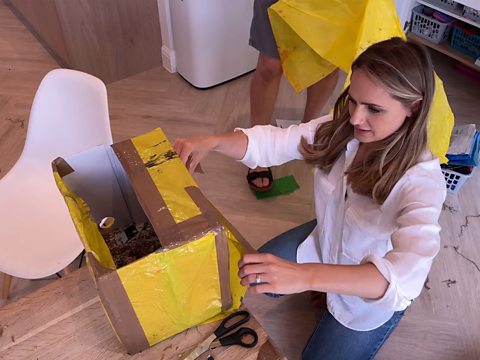
Get those creative juices flowing and come up with ways your family can support local wildlife – for example, you can fill up a washing up bowl with rainwater and add stones to it to make a pond or to create a bird bath.
If you’re up for something more challenging, why not build a hedgehog house? All you need is a cardboard box (with holes cut up for the entrance and ventilation) and dry leaves for the bed. Place it in a nice, quiet part of your garden, in the shade and ideally shielded from the wind.

Look after your local environment
Once you get used to spending more time in nature, why not go litter picking while you’re at it? You can turn it into a game or competition to make it more exciting.
If you notice that a particular area is often littered with rubbish, see if you can invite your friends and family to come along to help. It’s a chance to catch up, be more active in nature and show children that simple actions can make a difference.
Rosalind Allen, Education and Families Development Officer from the RSPB, suggests simple ways you can stay safe while litter picking. She says, “You’ll need bags for the litter and some protective gloves. Don’t pick up anything that might hurt you. Make sure you are in a safe place and have the landowner’s permission and remember to wash your hands when you’ve finished or if you have a break for a drink or snack.”
Green Classroom: How to look for wildlife in your local space
An online lesson from The Regenerators and the RSPB for primary school children.
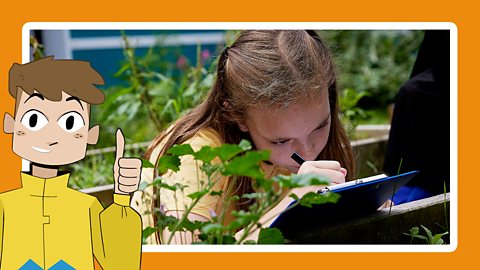
Make a difference
Discover more about the planet and how to protect it with the BBC.
How to fight climate change from your kitchen
THE REGENERATORS
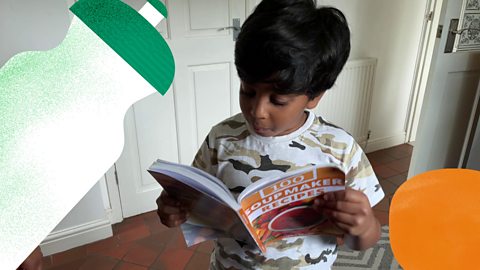
The surprising benefits of introducing children to nature
TINY HAPPY PEOPLE
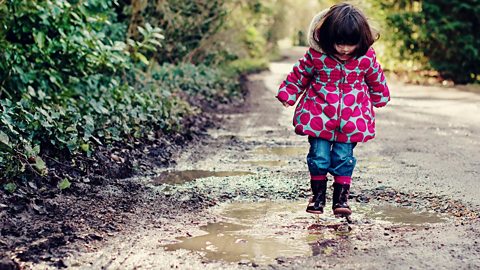
Return to the homepage
Back to The Regenerators
BBC BITESIZE

